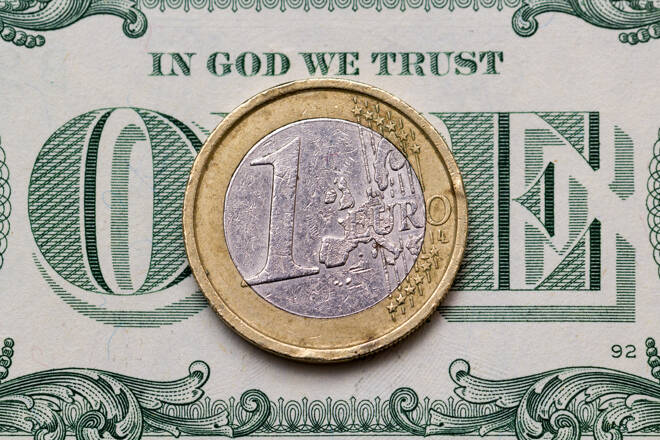Advertisement
Advertisement
Market Outlook: ECB Meeting, US Inflation in Focus amid Russia-West Tensions
By:
Following another volatile week in the financial markets, investors are awaiting key ECB meeting to see if the course of monetary policies may shift in light of Russia's invasion of Ukraine. They will also closely watch the US inflation data in February.
The euro plunged to a record 22-month low against the dollar on Monday, while commodity currencies surged to multi-month highs as the war in Ukraine sent oil prices soaring to the highest levels in ten years and fuelled fears of a possible stagflationary shock across Europe.
Stock indices in European markets are on the verge of starting a long-term downtrend. The price of oil has reached the highest level since 2008 at about $128 and gold, as a safe haven, is trading at around $2,000 per ounce. With the sharp rise in commodity prices in response to the latest developments in the Ukraine war, central banks are forced to take on an even more difficult role.
Faced with rising risks of stagflation, policymakers will have to make difficult decisions in the coming months, starting this week with the European Central Bank meeting. ECB will determine its monetary policy path.
It had been expected that the outlook for economic growth and business activities would help drive economic recovery following the implementation of massive stimulus packages during the Coronavirus outbreak.
However, with the Russian invasion of Ukraine, which led to a jump in energy and commodities prices, the impact of monetary policy on the real economy has diminished, but its inflationary effects have increased. Rising liquidity is contributing to rising inflation, which, if economic growth capacity is reduced, poses stagflation in the European economy.
Capping tightening policies
Central banks do not seem to be able to curb inflation by rates hikes as fast as they would like to. As a result, the market has dropped speculation about a 50-point increase in interest rates by the Federal Reserve in mid-March. It has also backed away from the European Central Bank’s 50-point rates hike to 20 bp by the end of the year.
Even after the Russian invasion, the market had a 75% chance that the Bank of Canada would raise interest rates by 50 points, but just ahead of its last week’s meeting, the market correctly lowered its forecast to 25 points.
ECB interest rate decision
The European Central Bank will convene on March 10, with officials expected to adopt a hawkish stance. At the same day, EU leaders hold a summit to discuss latest development of the Eurozone regarding the invasion of Russia. But policymakers now seem to have less capacity to boldly cut interest rates and are more likely to stick with cutting the bond-buying program. The question is how much change we will see.
The end of the bond-buying program in the coming months seems inevitable. But is the European Central Bank pointing to a rate hike this year? Obviously, the situation in Ukraine complicates the outlook, which may lead to scepticism of the central bank.
Fed’s hawkish stance ahead of Fed meeting next week
The Federal Reserve appears to have more leverage than the European Central Bank to combat inflation. The market will assess both central banks’ hawkish tone. The Fed, backed by a stronger labour market, appears to be able to outperform the European Central Bank in curbing inflation. But even then, stock markets may continue to decline. Because the growing uncertainty caused by the war has darkened the outlook for global economic growth in the difficult post-pandemic year.
The Fed’s chairman, Jerome Powell, testified in Congress that if inflation remains high, the Federal Reserve could raise interest rates by 50 basis points during its next monetary policy meeting. Inflation appears to be on the verge of deteriorating, and this could lead to a rapid withdrawal of credit by the Federal Reserve.
About the Author
Ali Mortazavicontributor
Ali holds BEc, (CMSA)®. He is an associate member of STA (Society of Technical Analysis UK) and IFTA (International Federation of Technical Analysis).
Advertisement
